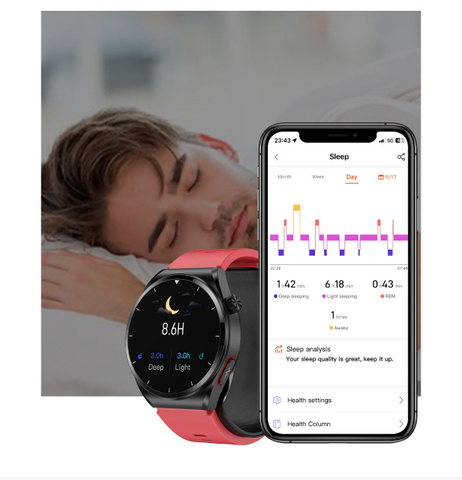Why Are Dreams So Vivid?
Have you ever woken up from a dream feeling like you've just experienced a vivid alternate reality? Dreams have fascinated humans for centuries, offering glimpses into our subconscious minds and often leaving us questioning their meaning and significance. But why are dreams so vivid, and what factors contribute to their intense realism?
The Science Behind Vivid Dreams
-
REM Sleep: Rapid Eye Movement (REM) sleep is the stage of sleep associated with vivid dreaming. During REM sleep, the brain becomes highly active, similar to when we're awake, while the body remains paralyzed to prevent acting out dreams.
-
Neurotransmitters: Neurotransmitters such as serotonin, dopamine, and acetylcholine play a role in regulating sleep and dreaming. Fluctuations in these neurotransmitter levels can affect the intensity and vividness of dreams.
-
Stress and Anxiety: Emotional arousal, particularly stress and anxiety, can lead to more vivid and intense dreams. The brain processes emotional experiences during sleep, and heightened emotions can manifest in dreams.
-
Sleep Disorders: Conditions such as narcolepsy, sleep apnea, and REM sleep behavior disorder can disrupt normal sleep patterns and lead to vivid dreaming. Treating underlying sleep disorders may help alleviate vivid dreams.
-
Medications and Substances: Certain medications, such as antidepressants, antipsychotics, and drugs that affect neurotransmitter levels, can influence dreaming. Additionally, substances like alcohol, nicotine, and recreational drugs may alter sleep patterns and contribute to vivid dreams.
How to Control Vivid Dreams
-
Keep a Dream Journal: Keeping a dream journal allows you to record and reflect on your dreams, helping you identify recurring themes, patterns, and emotions. Writing down your dreams upon waking can also improve dream recall over time.
-
Practice Relaxation Techniques: Engage in relaxation techniques such as deep breathing, meditation, or progressive muscle relaxation before bedtime to reduce stress and promote a more peaceful sleep environment.
-
Establish a Consistent Sleep Routine: Maintaining a regular sleep schedule can help regulate REM sleep and promote more stable and predictable dreaming patterns. Aim for seven to nine hours of quality sleep each night.
-
Limit Stimulants and Alcohol: Reduce consumption of stimulants like caffeine and nicotine, especially in the evening, as they can interfere with sleep quality and contribute to vivid dreaming. Similarly, avoid alcohol before bedtime, as it can disrupt REM sleep and lead to fragmented dreams.
-
Create a Comfortable Sleep Environment: Make your bedroom conducive to sleep by keeping it cool, dark, and quiet. Invest in a comfortable mattress and pillows, and consider using white noise or calming music to mask disruptive sounds.
-
Practice Lucid Dreaming Techniques: Lucid dreaming involves becoming aware that you're dreaming while still in the dream state. Techniques such as reality checks, dream journaling, and visualization exercises can help increase awareness and control within dreams.
Vivid dreams offer a window into the mysteries of the subconscious mind, reflecting our emotions, experiences, and innermost desires. While the exact causes of vivid dreaming remain elusive, factors such as REM sleep, neurotransmitter activity, stress, and sleep disorders play significant roles. By understanding the science behind vivid dreams and implementing strategies for control, you can harness the power of your dreams to gain insight, inspiration, and even personal growth. So, embrace the vividness of your dreams and unlock the secrets of your subconscious mind.










